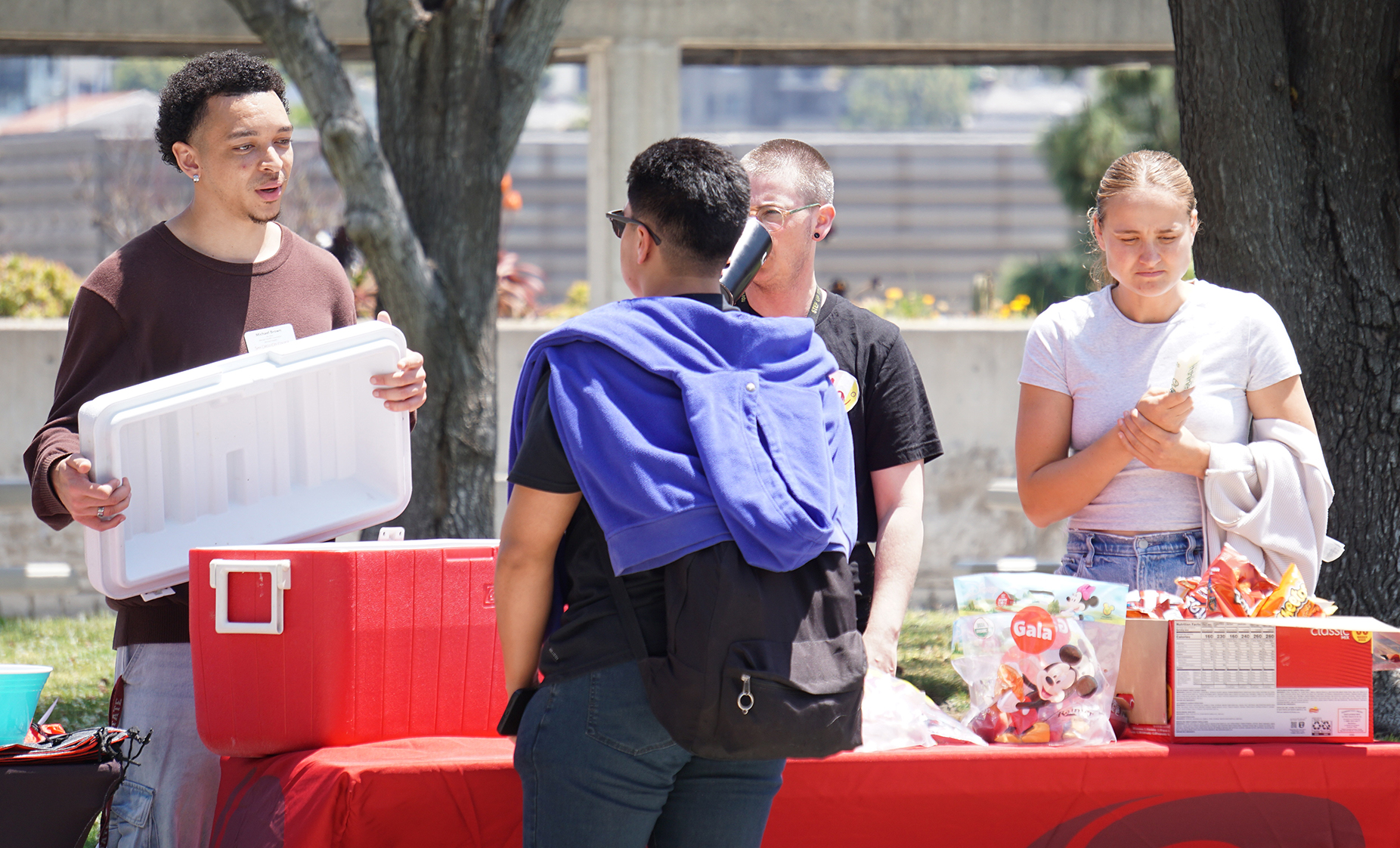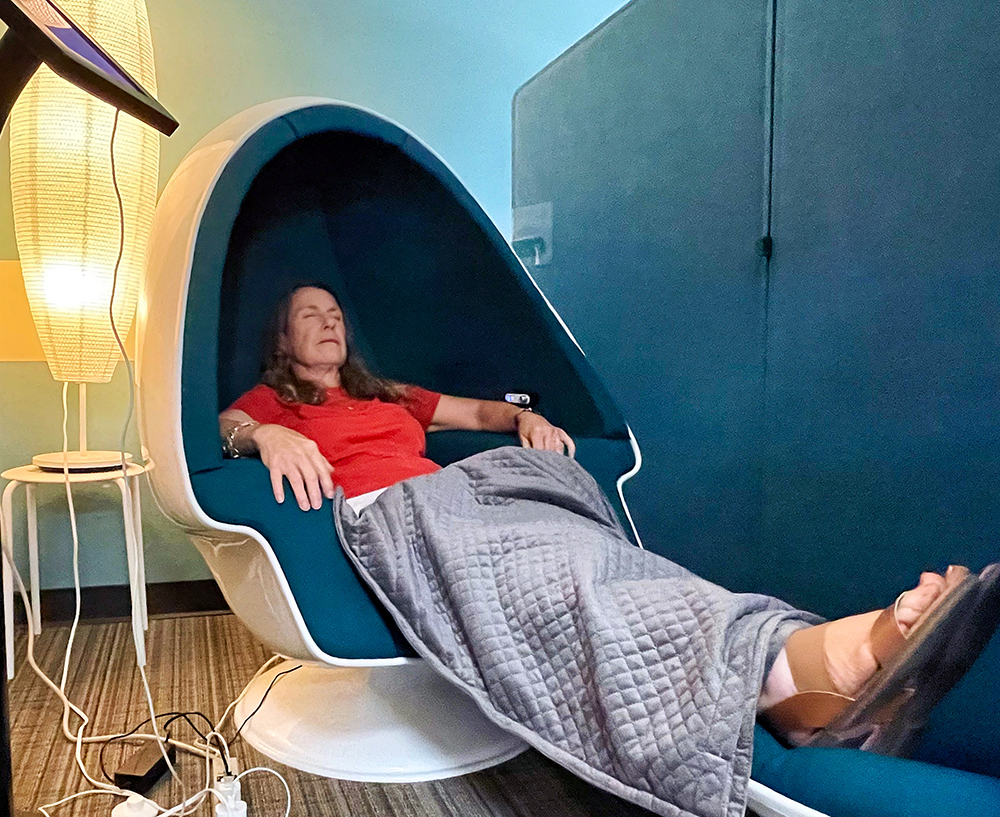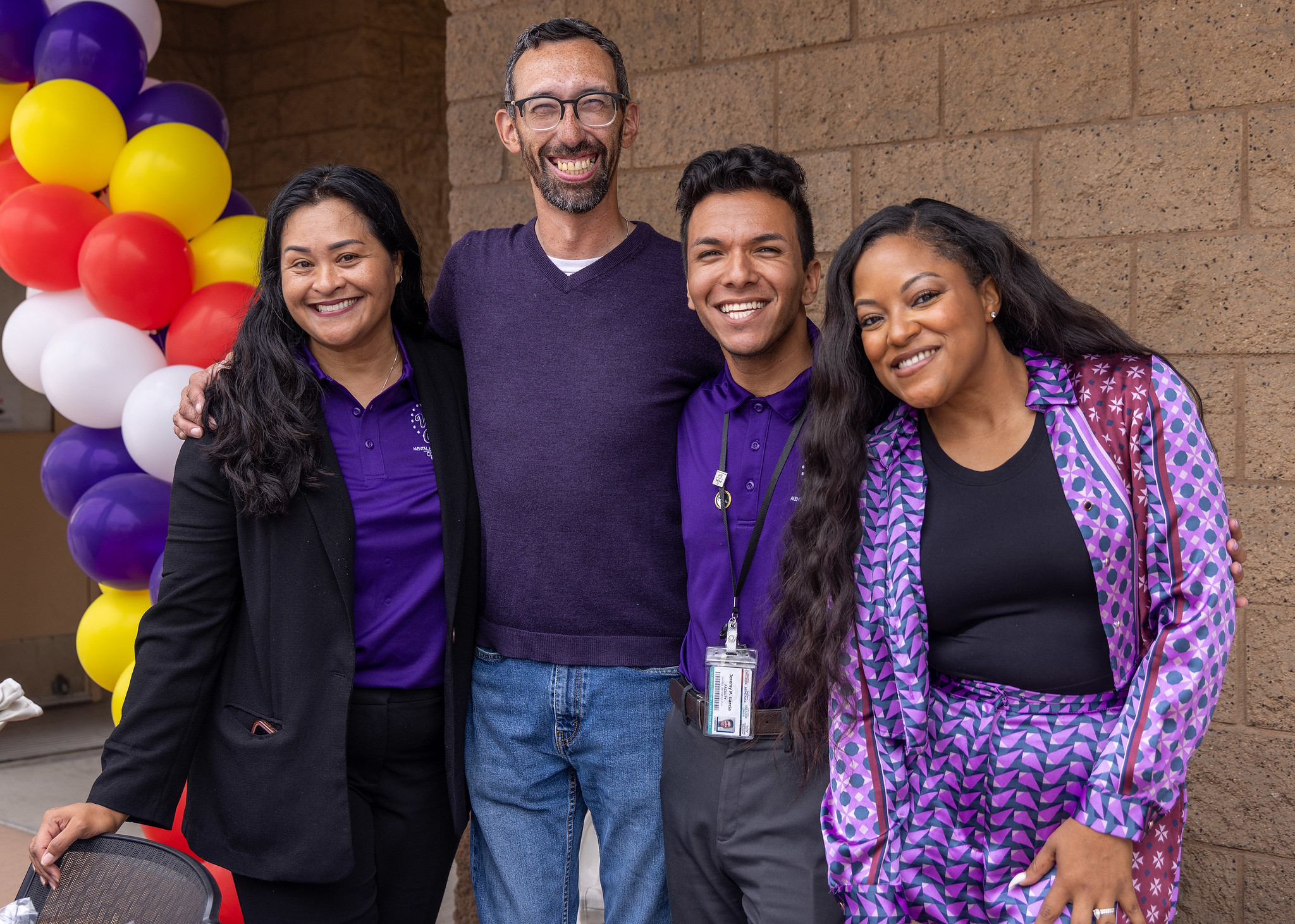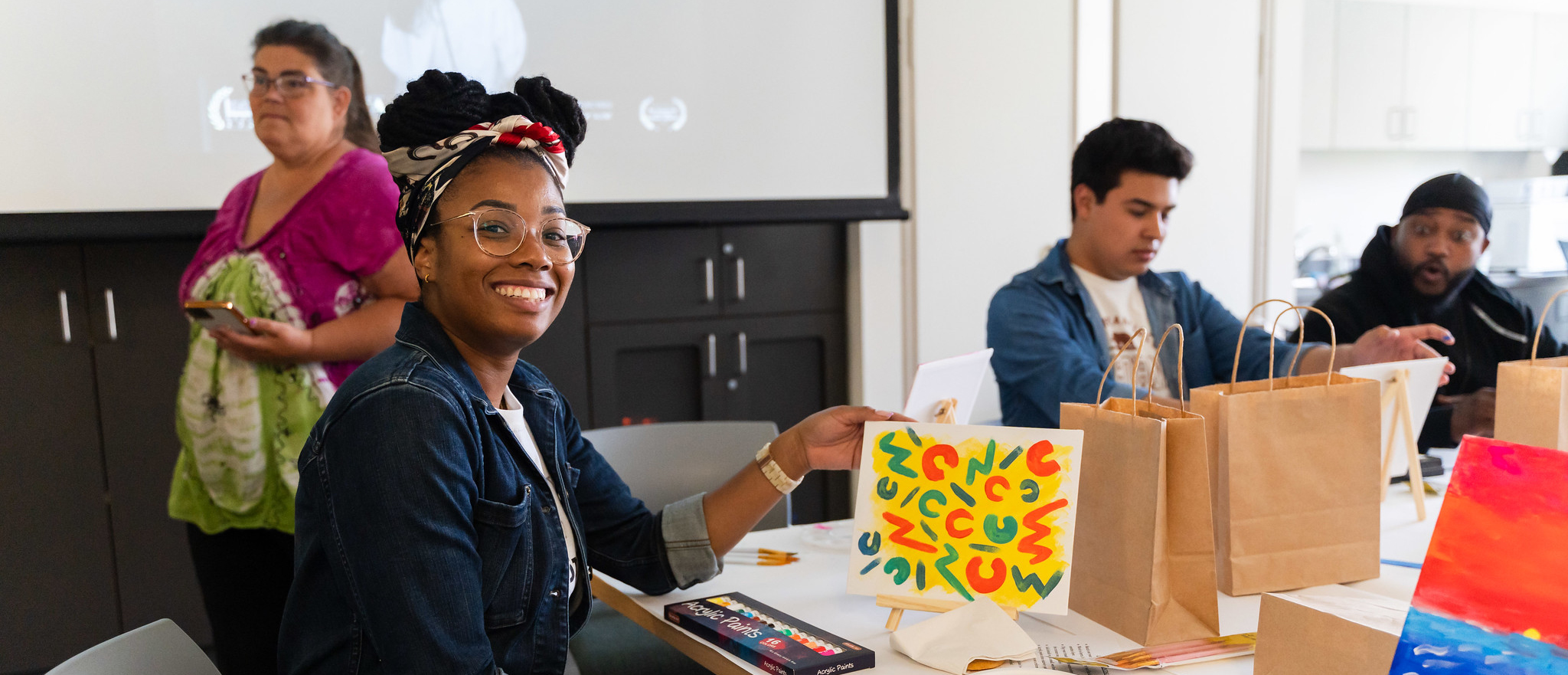
Across its four colleges, SDCCD offers students access to a variety of services and wellness activities with a goal to provide equitable and inclusive care and services, while eliminating barriers that might prevent students from seeking help.
“Together, we can build a thriving community where we know how to find help when we need it,” said Poppy Fitch, dean of Wellness and Disability Support Programs and Services. “My vision is that at SDCCD, we commit to being well, together.”
Students who are enrolled in at least one class at one of the three credit colleges have access to health services that are either free or significantly reduced in costs, so that all students can get the care they need.
“We strive for continuous quality improvement, equitable access to services, culturally relevant programs, and significant contributions to student success,” said Suzanne Khambata, director of Student Health Services at San Diego Mesa College. “We do this with comfort, care, concern, and research-based evidence to support our practice.”
Healthcare services offered by SDCCD include: diagnosis and treatment of illnesses; free visits with a registered nurse, medical doctor or nurse practitioner; weight, blood pressure, vision, diabetes, cholesterol, and tuberculosis screenings; lab tests; preventative care; and more. Those services have saved lives, Khambata said.

District colleges are also finding innovative ways to provide care. Mesa College recently received a California Community College Chancellor's Office grant to purchase, stock, and install a wellness vending machine. The self-serve machine carries free and low-cost everyday needs such as contraceptive devices and medication, menstrual products, over the counter pain relievers, and pregnancy tests.
But supporting the whole student is more than just providing healthcare. All District colleges have programs and events to help students connect with each other and access basic services such as food, housing, transportation, and more.
A focus on mental health
Supporting students’ mental health is a key focus for SDCCD leaders, said Fitch, the wellness and disability support dean. Citing a 2023 study by The Healthy Minds Network, she said mental health worsened for all students at colleges nationwide following the COVID-19 pandemic, with students who are Black, indigenous and/or people of color particularly vulnerable.
A collaboration of SDCCD mental health leaders has developed a comprehensive district-wide strategy aimed at bolstering mental health awareness and prevention activities and fostering increased access to mental health services and supports. The effort is being funded by a Conrad Prebys Foundation Youth Mental Health Grant.
Understanding the importance of identity, basic needs such as food and housing, and mental health is crucial to meeting the needs of each student, Fitch said.
At San Diego City College, mental health coordinator Leslie Easton leads robust mental health services in which mental health counselors are embedded into programs like Puente Project, Umoja Community, and Hermanos Unidos Brothers United (HUBU) to ensure the intersection of identity and mental health is prioritized.
Julia Kamp, a mental health counselor at Miramar College, has seen what an impact mental health services can have on students who are struggling, including veterans overcoming post-traumatic stress disorder and students coping with social anxiety.

“Building a sense of community, belonging, and equitable support for students to navigate their stressors and maintain their physical health can keep them on the pathway to academic and career success, acting as a bridge on their journey to effectively meet their life goals,” Kamp said.
In addition to counseling with a mental health professional, students at all District campuses have free access to support groups, educational workshops, wellness fairs, and Headspace, a mindfulness and meditation app.
On May 16, San Diego College of Continuing Education hosted its inaugural Mental Health Fair, with 16 community partners and more than 200 students attending, said Janisha Street, the college’s mental health coordinator. Students were able to access important resources, flu and COVID-19 vaccines, a meditation 101 lesson, and giveaways — all geared toward supporting mental health.
The range of mental health services, programs, and events at District colleges play a crucial role in keeping students healthy, Fitch said.
“It's important we prioritize mental health with the same urgency and attention we give to physical health,” she said. “Districtwide, our shared goal is to foster an environment where mental well-being is a foundation of community health.”
STUDENT HEALTH SERVICES
City College
Student health: (619) 388-3450
Mental health services: (619) 388-3055; [email protected]
Basic needs email: [email protected]; (619) 388-3684
Mesa College
Student health and mental health services: (619) 388-2774
Basic needs email: [email protected]; (619) 388-5726
Miramar College
Student health and mental health services: (619) 388-7881
Basic needs email: [email protected]; (619) 388-7154
College of Continuing Education
Student health and mental health services: (619) 388-SDCE (7323)
Basic needs email: [email protected]
